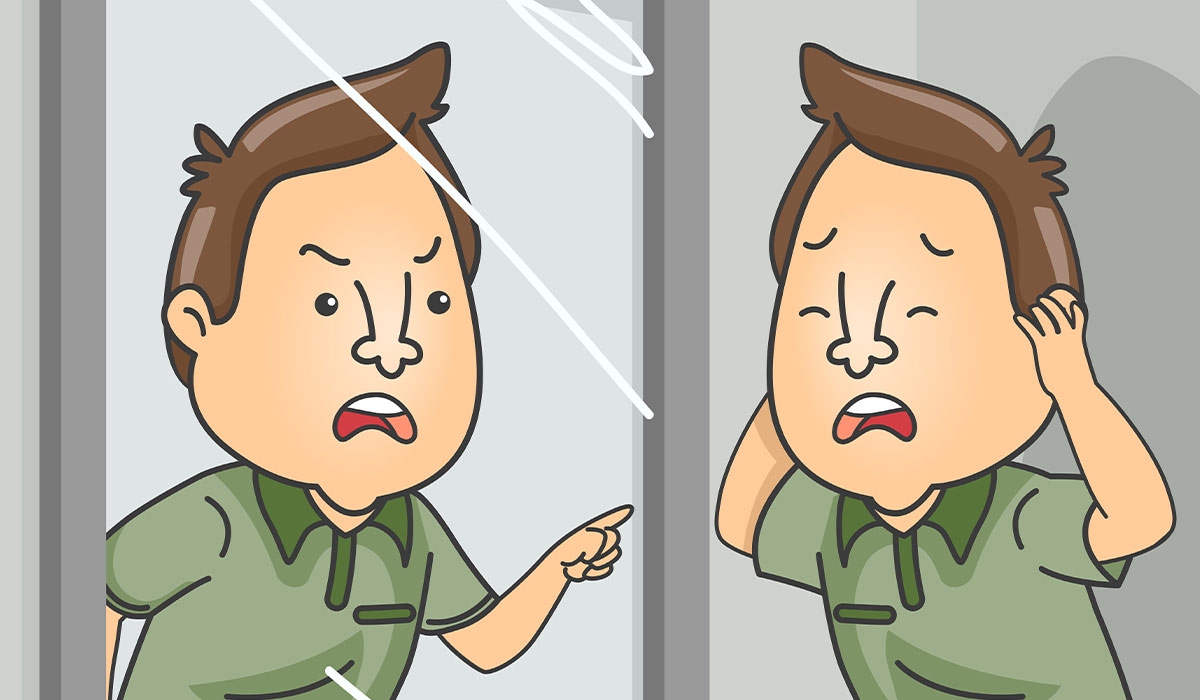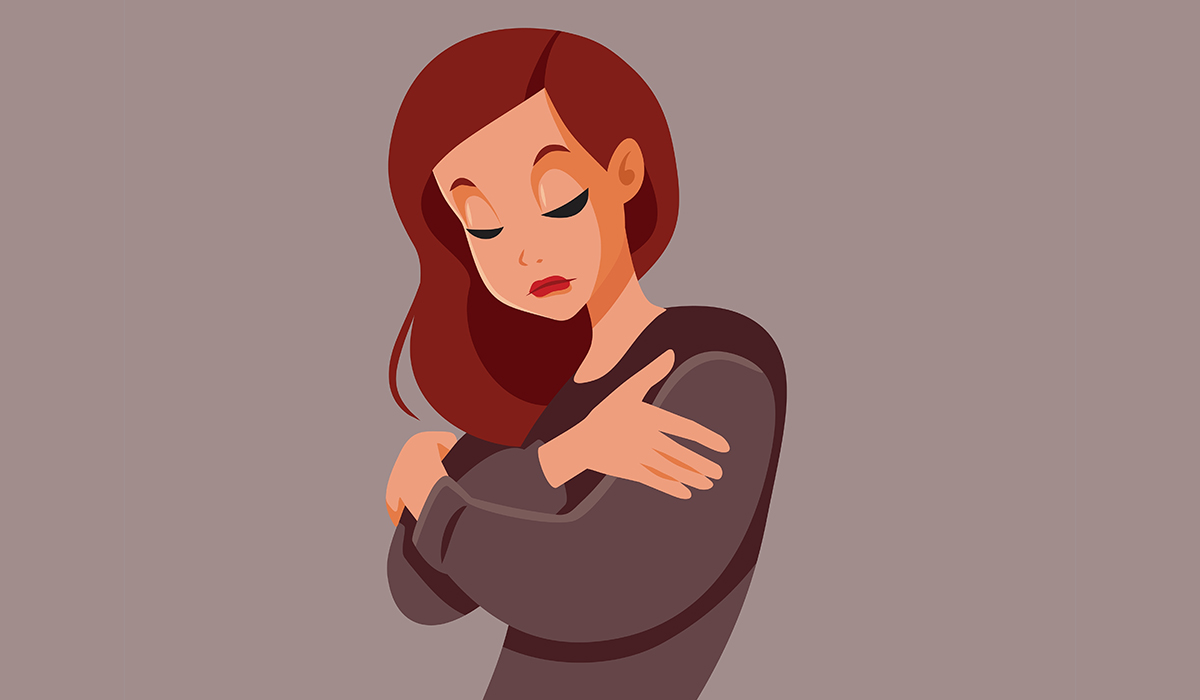Antisocial personality disorders belong to a category of mental dysfunctions that result in abnormal behavior, which directly affects an individual's ability to adapt to the social environment. Such individuals exhibit a generalized pattern of disregard and violation of other people's rights, and their behavior shows non-compliance with social and legal norms. The hallmark of this condition is the lack of empathy and regret regarding their actions. It is noteworthy that men are affected by it almost four times more frequently than women.
ICD-10 defines dissocial personality disorders (also known as antisocial personality disorders) as a pattern of behavior dominated by contempt for the rights of others and frequent violation of them, occurring after the age of 15. A lack of empathy, irritability, aggressiveness, impulsivity, and deceit characterize this disorder. Individuals with antisocial personality disorders tend to break the law by engaging in activities such as theft, burglary, and drug dealing. They may also abuse psychoactive substances, engage in self-harm, and even commit suicide.
It is estimated that up to 3.6% of the population meets the criteria for antisocial personality disorder. This information makes it one of the most typical personality disorders. The group in which this prevalence is particularly high are men who abuse alcohol, especially those undergoing addiction treatment and serving sentences in prisons.

The causes of antisocial personality disorders![]() have not yet been clearly and unambiguously determined. However, it is recognized that they are affected by internal (biological) and external (environmental) aspects. The most common biological factors include the malfunction of neural networks. Those are:
have not yet been clearly and unambiguously determined. However, it is recognized that they are affected by internal (biological) and external (environmental) aspects. The most common biological factors include the malfunction of neural networks. Those are:
Moreover, environmental factors also play a role in the development of antisocial personality disorders![]() . For example:
. For example:
Personality disorders are persistent and pervasive patterns in how one thinks, perceives, responds, and relates that cause a person significant distress or impair their functional capacity. To better understand the causes and treatment of antisocial personality disorder, you must first understand some aspects of this specific disorder. After all, many people confuse them with psychopathy (psychopathic personality disorders) or character disorders.
However, this is not the same diagnosis, although there are likenesses between them. For example, psychopathy can be understood as a condition in which an individual is calculating, cold, and manipulative. On the other hand, antisocial people may even exhibit similar behaviors, but they are more related to impulsivity than to emotional coldness.
Symptoms![]() of antisocial personality disorder can vary in level and intensity for each person. They occur more often in men than in women. It is estimated that 1 to 4% of the general population has an antisocial personality disorder. The incidence of the disorder decreases with age, suggesting that patients can learn to change their behaviors over time and try to work towards a better quality of life.
of antisocial personality disorder can vary in level and intensity for each person. They occur more often in men than in women. It is estimated that 1 to 4% of the general population has an antisocial personality disorder. The incidence of the disorder decreases with age, suggesting that patients can learn to change their behaviors over time and try to work towards a better quality of life.
It can be said that antisocial personality disorder is a type of chronic mental condition in which thinking, perceiving, feeling, and relating to others may become dysfunctional and destructive. An antisocial person does not distinguish between what is good and what is bad. They completely disregard the desires, rights, and feelings of others, which means a complete lack of empathy.
In the International Statistical Classification of Diseases and Related Health Problems (ICD-10), dissocial personality disorder![]() is in a category that includes asocial personality, antisocial personality, psychopathic personality, amoral personality, and sociopathic personality. In the case of antisocial personality disorder, the first symptoms may appear already in adolescence after the age of 11 and may be more noticeable after the age of 15. They mainly manifest themselves through aggressive behavior and lack of empathy.
is in a category that includes asocial personality, antisocial personality, psychopathic personality, amoral personality, and sociopathic personality. In the case of antisocial personality disorder, the first symptoms may appear already in adolescence after the age of 11 and may be more noticeable after the age of 15. They mainly manifest themselves through aggressive behavior and lack of empathy.
Dissocial personality traits in young people include:
An individual with antisocial personality disorder lacks empathy for others and maybe dismissive or unconcerned about the feelings, rights, and suffering of others. They are also characterized by impulsivity and antisocial behavior and have difficulty planning and thinking about consequences for themselves or others. Therefore, they may exhibit behaviors such as:
Additionally, people with this personality disorder become easily irritated and may show physical aggression. They have serious difficulty controlling their impulses and do not consider their actions' impact on others. They may also be socially and financially irresponsible, which manifests itself in the following:
Interestingly, you can easily fall for their lies because when you first meet them, they are charming and convincing in their efforts to get what they want.

To sum up, antisocial personality disorders are characterized by:
The presence of the above behaviors may indicate serious personality problems that a psychotherapist should address.
To make a diagnosis![]() of antisocial personality disorders, the psychiatrist first assesses whether a given patient meets the criteria for specific personality disorders
of antisocial personality disorders, the psychiatrist first assesses whether a given patient meets the criteria for specific personality disorders![]() , i.e., states that they exhibit behaviors and models of internal experience that are different from those acceptable by the environment in at least two areas: cognitive processes, that is, ways of perceiving and interpreting reality, emotionality, controlling impulses and rewarding needs, as well as the way of relating to others and acting in interpersonal situations.
, i.e., states that they exhibit behaviors and models of internal experience that are different from those acceptable by the environment in at least two areas: cognitive processes, that is, ways of perceiving and interpreting reality, emotionality, controlling impulses and rewarding needs, as well as the way of relating to others and acting in interpersonal situations.
In addition, the disorder must manifest itself as inflexibility, maladjustment, or other dysfunction and cover a wide range of individual and social situations. The person suffering from the disorder is negatively impacted, or both. It is also necessary for the symptoms to be stable and long-lasting and for their onset to be observed in late childhood or adolescence.
The condition that excludes the diagnosis is that the symptoms are considered to be symptoms of another mental disorder. Still, the co-occurrence of other mental disorders does not exclude the diagnosis.
Before making a diagnosis, the doctor also excludes organic disease, trauma, or brain dysfunction.
Adolescents exhibiting this behavior are more likely to develop the disorder in adulthood. It does not mean that you will necessarily develop the disease, but you need to be aware of the risk. However, to be diagnosed by a psychologist, a person with the disorder must be over 18 years of age and meet at least three of the following criteria according to ICD-10:
The standard method and the only one with proven long-term effectiveness in the case of all personality disorders is psychotherapy![]() , in which the patient-therapist relationship and conversation are considered to be the key therapeutic elements.
, in which the patient-therapist relationship and conversation are considered to be the key therapeutic elements.
Long-term individual dynamic psychotherapy (psychoanalytically oriented) is considered the most effective and most frequently used in general in the case of personality disorders. Still, it is not recommended for people with dissocial personalities because they are not able to change through insight.
However, you can try therapy using cognitive-behavioral assumptions.
Pharmacotherapy![]() , i.e., the use of drugs, is of secondary importance in the case of personality disorders. The need for its use most often results from the co-occurrence of other mental disorders, which is, as previously mentioned, a common phenomenon in the case of dissociative personality disorder. Then, medications are used appropriately for the coexisting disease – e.g., antidepressants in the treatment of depressive disorders or anxiolytics in the case of anxiety disorders.
, i.e., the use of drugs, is of secondary importance in the case of personality disorders. The need for its use most often results from the co-occurrence of other mental disorders, which is, as previously mentioned, a common phenomenon in the case of dissociative personality disorder. Then, medications are used appropriately for the coexisting disease – e.g., antidepressants in the treatment of depressive disorders or anxiolytics in the case of anxiety disorders.
Undertaking psychotherapy by people with dissocial personalities is most often the result of a real threat, e.g., loss of job, expulsion from school, divorce, or imprisonment. Due to the lack of internal motivation to undertake treatment and lack of reflection and insight into one's actions, therapy is usually treated as another game, thanks to which a person can ultimately achieve something for themselves.

Taking into account the fact that we are dealing with a personality disorder, i.e., the sphere of humanity that is very difficult to influence and, at a certain age, changing it becomes practically impossible. Psychotherapeutic activities are only effective to a limited extent.
They allow a given person to observe their reaction styles and behaviors, analyze them, find solutions that allow for better social functioning, and improve the quality of life not only of the patient but also, and perhaps above all, of those around them.
However, due to the lack of insight into the symptoms, in the case of dissocial personality, the effects of treatment are usually small. Finally, it should be emphasized that what is optimistic is the fact that the severity of the symptoms of the disorder decreases with age.
Remember that you are not the psychotherapist of the person experiencing the illness. No matter how much you want to help your partner![]() , you cannot replace the help of professionals. Know that no diagnosis of your partner can be used to explain unacceptable behavior towards you or other people. Lack of respect, frequent aggression, use of blackmail, insults, or other behaviors that bear the hallmarks of psychological violence cannot be explained by the disease.
, you cannot replace the help of professionals. Know that no diagnosis of your partner can be used to explain unacceptable behavior towards you or other people. Lack of respect, frequent aggression, use of blackmail, insults, or other behaviors that bear the hallmarks of psychological violence cannot be explained by the disease.
One such influence may concern the basic balance in the relationship, where the problems that the sufferer is struggling with within a certain area receive more attention than the mere presence of a partner who is not struggling with any difficulty. This arrangement may make it difficult for a healthy person to remember to take care of themselves in terms of mental health and not to blame themselves for their partner's recovery.
The impulse to take on such a duty is, on the one hand, something natural and, in a sense, good, because it shows the strength of determination and willingness to help. However, if it is not noticed in time and replaced with a more solid form of help, it may lead to too much strain and, as a result, even the relationship breakdown.
The second area where a relationship may experience difficulties is related to emotions. People in a relationship experiencing an illness or disorder may have difficulty experiencing and expressing emotions. Therefore, problems with understanding the partner and emotional states, such as a sense of shame or regret, may exist. Of course, a lot depends on the phase in which the relationship is, but also on the stage of recognizing the difficulties – whether it has been diagnosed and taken care of psychotherapeutically and possibly psychiatrically or not yet.
People suffering from any serious disorders must not be relieved of their duties. Help is recommended, but doing so will only result in greater isolation. The patient will be deprived of all activities, which will also result in them losing motivation to function. The patient should have work and tasks. Do not overwhelm the patient with your care and support; give them space.
Table of Contents

Borderline Personality Disorder is a severe psychological case that requires appropriate treatment. Learn what type of therapy is available for… read more »

What are the signs of narcissistic personality disorder? Learn, when it is time to start therapy. Check out, the ways… read more »

An introvert is a person with a special personality. Find out about the characteristics of introverts and how being an… read more »

Dissociative identity disorder Ii is characterized by the presence of at least two independent and different personalities in one person.… read more »

An extrovert is an open and sociable person. The characteristics of this personality type affect various aspects of life. Find… read more »

Being polyamorous means having relationships with two or more partners. It is not a mental disorder. What does a polyamorous… read more »

Bipolar disorder is a mental disorder characterized by the alternation of extremely different mental states – depression and mania. What… read more »

Mental health is the foundation of a good life. Learn strategies on how to improve your mental well-being. Create a… read more »

Dysmorphia is a mental disorder associated with a negative body image. It is a common problem these days. Learn how… read more »